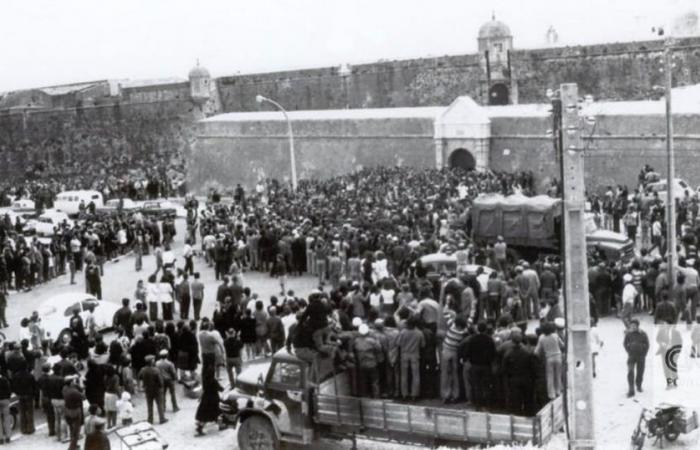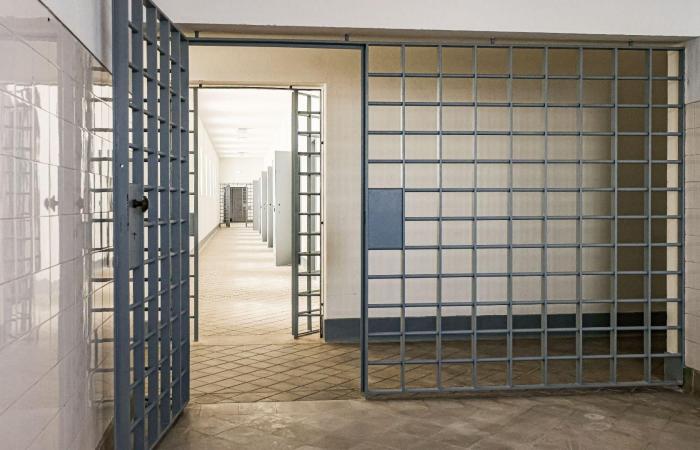Of course, being a communist, I knew I could be arrested at any time. “We had to know. In fact, I saw many comrades who were arrested. We knew that was the risk.” It happened to him, for the first time, in 1959. He was arrested on the street, in Amadora. “They didn’t even know who I was, they only knew that I was a clandestine. The first thing they asked me was my name. They never heard good morning or good afternoon from my mouth, not even my name. Zero. From my mouth, zero. That one The first encounter decides a lot. If you join the police and don’t say your name, you can never say your name again because it was a weakness. And at a certain point they already knew who I was, but they kept asking me my name. to see if I weakened. And I didn’t.”
Unless you call them names, of course. “And a curious thing happened: if they were called thieves, because they were thieves – they robbed us, they kept our clothes, our pans, our books, everything, everything, everything, everything was stolen, everything was confiscated, we were left, my wife and I, with just the clothes on my body, they beat me. They hit me hard and well. If I called them murderers, they wouldn’t even touch me. And what’s more, and they were proud of it, they said yes, we killed.
Domingos Abrantes was arrested in Caxias, Aljube and Peniche. In total, he spent 11 years in prison. He was interrogated and tortured. He suffered sleep torture and isolation. “Torture is a struggle, you cannot show the slightest hesitation”, he recalls. “Once they took my chair away so I could stand up. And I lay down on the floor. They came with batons. But I couldn’t get up from there.” And then this: “There is one thing that is mandatory: being prepared not to speak, it is a duty.”
Domingos Abrantes when he was arrested in Caxias, in 1959 (DR/ PCP)
The last time he was tortured was 16 consecutive days and 16 nights. It’s hard to imagine. “They wouldn’t let me sleep. And beatings. Always with psychological work. And you’re going to die, and you’re going to die, and you’re going to die… And the party doesn’t deserve that sacrifice. And you’re close to death. So, always instilling fear of death.” Domingos was on the floor, he could no longer stand, but he remembers that he was still able to smile. “I knew that, deep down, it was because they were angry that I didn’t say anything. And I can tell you that it is an immense joy to show that our convictions are stronger than violence. Because they could kill me and they were very close to that, but I had something that they wouldn’t have. Leaving the police without talking is an immense joy. It shows that we are capable of overcoming ourselves.”
He often says he was buried alive. “I was figuratively, of course, but I really was, literally.” It happened after the famous escape from Caxias, in 1961, with other companions. When he was caught again, in addition to being convicted of political activity, he also had to pay for having fled, for having destroyed a car, broken a gate, and had to pay for the damage to the public treasury. “I came directly from the torture of sleep to Caxias. And there was a staff waiting for me: the prison director, the PIDE inspector, the chief guard, the entire elite to give me an answer: ‘A good son will return home.'” As punishment, he spent ten days in the “secret”.
The secret “was a horrible place”, says Domingos Abrantes. “It was an underground hole. There wasn’t the slightest crack through which light could enter. Completely dark. You couldn’t hear the sound of a fly. Absolute silence. I slept on the dirt floor and the toilet was that Roman toilet, a hole in the floor . I had to feel around, with my hands on the wall. And I was there for ten days”, he recalls.
He was “a bit of a regula”, he confesses. As she was about to enter the “secret”, the guard warned him: “You can’t sing”. Domingos didn’t like to sing, “he was a cracked reed.” “But the moment they told me I couldn’t sing, I had to sing. So I sang The Internationale. It was the only thing I knew. That didn’t ease me at all, it was just because they told me I couldn’t do it.”
Peniche prison cells – National Resistance and Freedom Museum (DR: Arlindo Homem)
Tags: political prison museum cry achievement freedom beautiful experience
--






